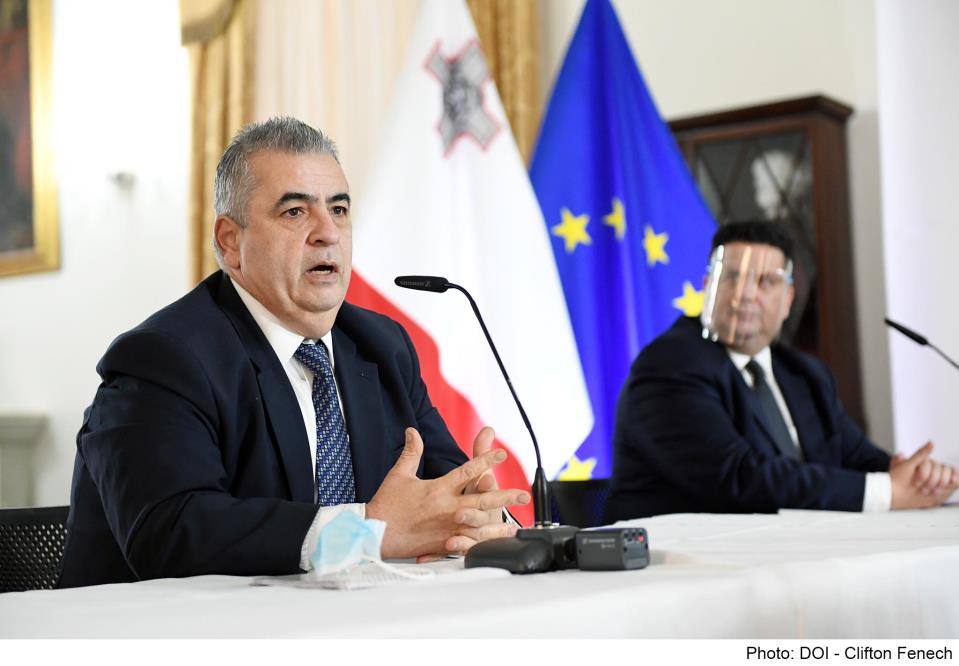Time-barring should be removed for all cases of sexual abuse since victims often take years to open up about their ordeal, the director of Women's Rights Foundation, Lara Dimitrijevic, told The Malta Independent.
The head of the Church's Safeguarding Commission, Andrew Azzopardi, is also of the firm belief that time-barring should be removed but adds that this alone is not enough.
This comes after a number of people and organisations have called for the removal of time-barring, as victims of such crimes.
The issue came to the fore recently after a former Gozitan priest escaped police action in an alleged sex abuse case as the case was already time-barred when a report was made in 2018. The police were legally prohibited from investigating the case, despite the fact that the allegations had been deemed credible by the Church's Safeguarding Commission.
Dimitrijevic said that she firmly believes that time barring "should be removed for all forms of sexual violence, including against adults and more so on minors."
The trauma continues to linger for such people, she remarked, so it would be difficult for them to speak about it. "Research and experience has shown, over and over again, the suffering and trauma that survivors of sexual abuse experience, let alone when the survivor is a child that needs to come to terms with the childhood they have been robbed of," she said.

Dimitrijevic pointed out that there are already some countries which have removed time-barring on such crimes, such as the England, Canada, South Africa and Australia.
"Removal of time-barring is not a new concept in our law. In 2013, time-barring was removed for corruption involving politicians. Removal of time-barring would also be a strong message that our society is not tolerant or does not close its eyes to such crimes," she said.
Finally, she noted that organisations working with children "need to prioritise safeguarding to support victims to speak up."

Lawyers who threaten victims 'should be disciplined'
This newspaper also contacted the Head of the Safeguarding Commissions, Andrew Azzopardi, to get his point of view on the situation. The Safeguarding Commission primarily works within the Church in Malta and Gozo. It also offers support to other organisations through policy development, training and risk assessments on individuals against when an allegation was made.
Azzopardi said that, in his view, time-barring should be removed for child sexual abuse. He noted that this opinion stems from his experience in supporting victims of child abuse and "the barriers they face to speak up, particularly in a small country like Malta."
However, he believes that the removal of time-barring removal alone is not enough. He first observed that the criminal justice system should be more child-focussed and that it should be informed by the effects of trauma. "Lawyers who send threatening letters to try to silence victims should be disciplined by the Courts and by the Chamber of Advocates," he said.
Secondly, he also mentioned that the media should also be very cautious when reporting specific details of abuse, as it can have a negative effect on the victims by opening the psychological wound again. "While some victims might be encouraged and come forward to tell their story after reading abuse testimonies in the media, others will go deeper underground due to the fear of being exposed," he said.
"One victim recently told me that he felt re-victimised when he read the extensive details of the abuse in recent weeks."

Government open to discussion - Falzon
The Government is also open to the idea of removing time-barring in child sex abuse cases, Minister for Social Justice and Solidarity, the Family and Children's Rights Michael Falzon told The Malta Independent.
"I am open to ideas. We have committed ourselves to many changes in the past few years and I would not mind if we had to elaborate and discuss more on the subject," Minister Falzon said.
"We have to see if we are going to remove it completely or make the time-period longer. We have to see the reasons, and if we see that this measure will help with the protection of children, why not?"
Falzon said that such a discussion would require a certain degree of consultations, given its legal nature. "As I said, it is something one has to analyse, even with other colleagues in Cabinet, as this is something which falls under the umbrella of criminal law, and we have to also see what all the stakeholders say. If we see that we are going to improve people's lives, we will implement it."